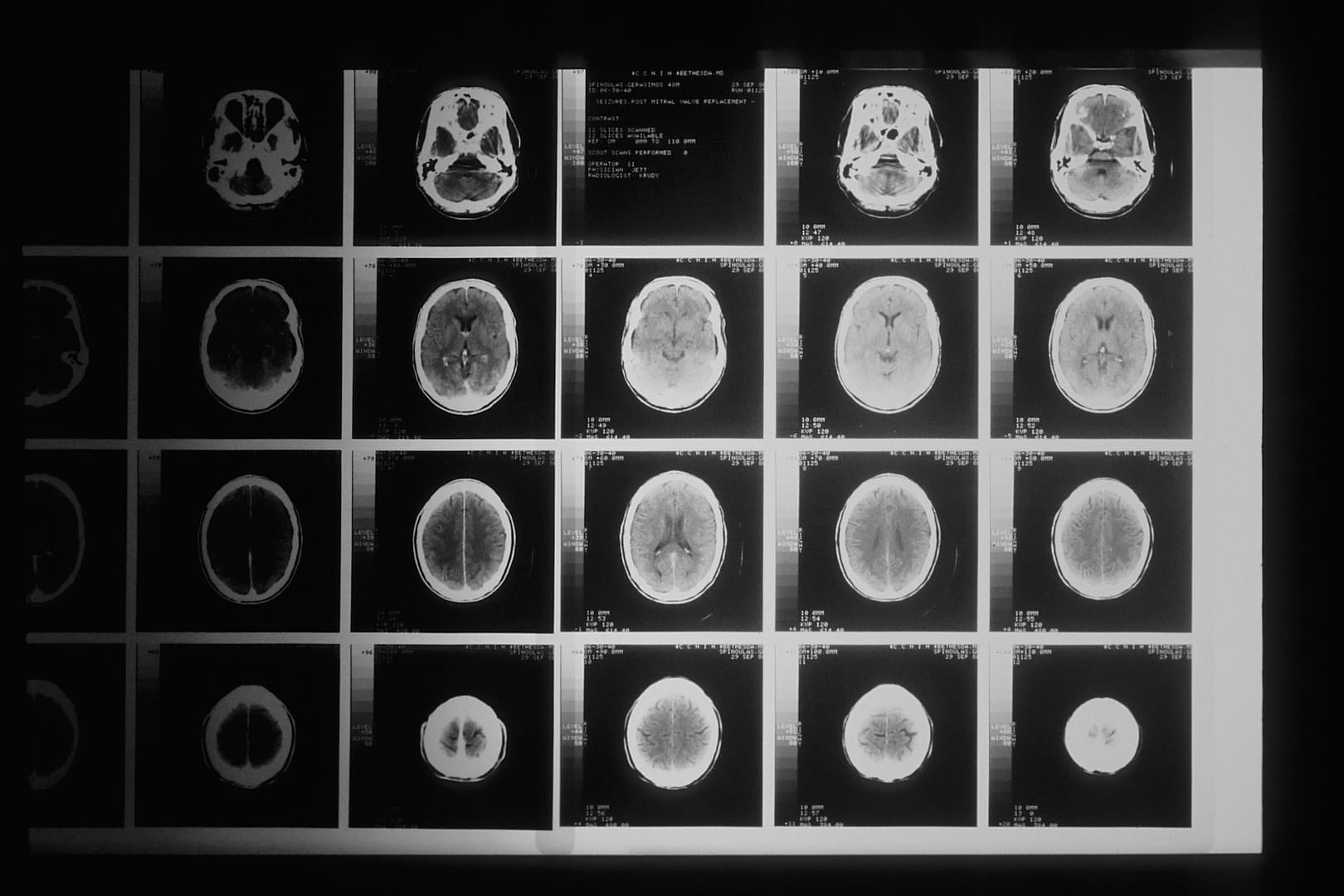In the realm of medical challenges, brain injuries stand as a formidable adversary. These injuries can have far-reaching consequences, affecting not only one’s cognitive and motor functions but also giving rise to a persistent and often agonising companion: chronic pain. In this article, we will delve into the world of chronic pain management for brain injuries, exploring the causes, available pain relief options, and the ongoing journey of those who grapple with this intricate condition. We also explore the options available to you when making a serious injury claim.
Can a Brain Injury Cause Chronic Pain?
Before we embark on our exploration of pain management, it’s crucial to understand that brain injuries can indeed cause chronic pain. These injuries, which may result from a myriad of causes such as traumatic accidents, falls, or strokes, have the potential to disrupt the intricate network of nerves and neurotransmitters within the brain.
Imagine a delicate symphony, where each note played by neurons and synapses contributes to the harmonious functioning of the brain. When this symphony is interrupted by injury, the consequences can be profound. Nerves may misfire, sending erroneous pain signals or amplifying ordinary sensations into excruciating agony.
For many individuals, chronic pain becomes an unwelcome companion following a brain injury. It is a relentless foe, persisting long after the initial injury has healed. To gain insight into the intricate world of chronic pain management for brain injuries, we must first understand the nature of this pain.
Understanding Chronic Pain in Brain Injuries
Chronic pain, by definition, persists for a prolonged period, often extending beyond the expected healing time of an injury. When it takes root in the aftermath of a brain injury, it can manifest in various forms, each with its unique challenges. Here are some common types of chronic pain associated with brain injuries:
Headaches
Headaches are among the most prevalent forms of chronic pain following a brain injury. These headaches can range from mild to severe, and they often persist for months or even years. The pain can be localised or spread across the entire head, making daily life a struggle for those affected.
Neuropathic Pain
Neuropathic pain is characterised by tingling, burning, or shooting sensations and results from nerve damage. Brain injuries can disrupt the normal functioning of nerves, leading to neuropathic pain that is often challenging to treat.
Musculoskeletal Pain
Brain injuries can affect muscle tone and coordination, leading to musculoskeletal pain. This pain can result from abnormal muscle contractions or postural changes, making it a complex aspect of chronic pain management.
Central Pain Syndrome
Central pain syndrome is a condition where pain signals are processed abnormally in the brain and spinal cord. It can lead to intense and widespread pain, often described as a burning or searing sensation.
The Quest for Pain Relief
Now that we’ve explored the types of chronic pain that can afflict those with brain injuries, let’s journey into the realm of pain relief. The pursuit of relief is a complex and deeply personal one, with no one-size-fits-all solution. It often involves a combination of medical interventions, therapies, and lifestyle adjustments.
Medications
Medications play a pivotal role in managing chronic pain for individuals with brain injuries. Commonly prescribed drugs include:
Analgesics: These are pain relievers such as acetaminophen or nonsteroidal anti-inflammatory drugs (NSAIDs) like ibuprofen, which can help manage mild to moderate pain.
Antidepressants: Some antidepressants, such as tricyclic antidepressants and selective serotonin and norepinephrine reuptake inhibitors (SSNRIs), can be effective in treating neuropathic pain associated with brain injuries.
Anticonvulsants: Drugs like gabapentin and pregabalin are used to manage neuropathic pain and can provide relief for some individuals.
Opioids: In cases of severe pain that doesn’t respond to other treatments, opioids may be prescribed cautiously. However, due to the risk of addiction and side effects, their use is typically reserved for specific situations.
Physical Therapy
Physical therapy is an essential component of chronic pain management for brain injuries. Therapists work with patients to improve mobility, strengthen muscles, and address issues related to posture and balance. These interventions can help alleviate musculoskeletal pain and improve overall function.
Occupational Therapy
Occupational therapists assist individuals in regaining the skills necessary for daily living. This can include teaching adaptive strategies and providing assistive devices to reduce pain and enhance independence.
Cognitive-Behavioral Therapy (CBT)
CBT is a form of psychotherapy that helps individuals manage pain by changing their thoughts and behaviours related to pain. It can be especially beneficial in addressing the emotional and psychological aspects of chronic pain.
Interventional Procedures
In some cases, interventional procedures may be considered. These include nerve blocks, spinal cord stimulation, or injections of medications directly into the affected area. These procedures aim to disrupt pain signals or reduce inflammation.
Lifestyle Modifications
Lifestyle modifications are a crucial aspect of chronic pain management. These may include:
Diet: A balanced diet can play a role in reducing inflammation and promoting overall health.
Exercise: Regular physical activity, under the guidance of healthcare professionals, can help improve mobility and reduce pain.
Stress Management: Stress can exacerbate chronic pain. Techniques such as mindfulness, meditation, and relaxation exercises can be beneficial.
Sleep Hygiene: Quality sleep is essential for pain management. Establishing healthy sleep patterns can improve overall well-being.
Making a Serious Injury Claim with National Claims
At National Claims, we understand the profound impact that brain injuries and chronic pain can have on individuals and their families. We are committed to providing support and guidance to those seeking compensation for their injuries. If you or a loved one has suffered a brain injury and is experiencing chronic pain as a result, here’s how we can help:
Consultation
Our journey together begins with a consultation. We’ll take the time to listen to your story, understand the circumstances of your injury, and assess the potential for a serious injury claim. Our team of experienced professionals will guide you through the claims process and answer any questions you may have.
Investigation
Once we’ve initiated your claim, our dedicated team will conduct a thorough investigation. This includes gathering medical records, consulting with experts, and assessing the long-term impact of your brain injury and chronic pain. Our goal is to build a compelling case on your behalf.
Resolution
Throughout the process, we will keep you informed and involved. We understand the emotional toll of brain injuries and chronic pain, and we are dedicated to providing support every step of the way. Our aim is to achieve a fair and just resolution that allows you to focus on your recovery and future well-being.

Conclusion
In the intricate landscape of chronic pain management for brain injuries, the journey is both unique and challenging for each individual. It’s a journey marked by resilience, adaptation, and the unwavering pursuit of relief. Through a combination of medical interventions, therapies, lifestyle adjustments, and the support of organisations like National Claims, those affected by brain injuries can find ways to not only manage their pain but also regain their sense of self and purpose.
While there is no magic solution to chronic pain, there is hope. With the support of healthcare professionals, the embrace of therapies, the camaraderie of fellow travellers on this path, and the advocacy of organisations like National Claims, individuals with brain injuries can find their way towards a life where pain no longer dominates their existence.
As we conclude our exploration of chronic pain management for brain injuries and the role of National Claims in advocating for those affected, let us remember that empathy, understanding, and ongoing research are essential in the quest to alleviate the suffering of those facing this complex and formidable challenge. Together, we can make a difference in the lives of individuals on this journey of recovery and resilience.
Contact us to get a start on your claim and to find out more about how we deal with serious injury claims.
Click below to see why we are one of the most trusted claims management companies in the UK.

We’re proud of our excellent customer reviews
We thrive on delivering exceptional service and ensuring our clients’ satisfaction. Don’t just take our word for it. Check out some of our independent reviews to see what our clients have to say.
Excellent

This firm is excellent, they sorted out my car pay out and injury claim very fast, they always communicate with you all the time.

My accident case was dealt with confidence and with great result of the outcome, especially James kept me informed all the time.

I was very impressed at the way my inquiry was treated. I was listened to attentively and everything I needed to know was explained to me.






